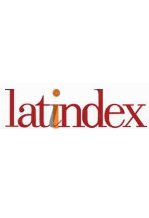ECLAC
Brazil, Argentina and the Problems and Mistakes in the Latin American Structuralist Economic Theory
Palabras clave:
Latin America, Post-Keynesianism, Economic Commission for Latin America and the Caribbean (ECLAC), Economic Policy, Marx, Austrian Economics, Economic DevelopmentResumen
To a large part, Latin American economic thought is rooted in the view that the state should be the engine of economic development. The theory developed by the Latin American Structuralist School supports this view. ECLAC, a United Nations development commission, is the bastion for the policy agenda branch of structuralism. In spite of its central role in Latin America economic policies, structuralist ideas have hardly been discussed. We trace the historical origins of this school and use the theoretical standpoint of the Austrian School of Economics to talk about its ideas and mistakes.
Descargas
Citas
Aguilar Filho, H. A. de, & Silva Filho, E. B. da. (2010). A crítica novo-institucionalista ao pensamento da Cepal: a dimensão institucional e o papel da ideologia no desenvolvimento econômico. Economia e Sociedade, 19(2), 211–232. https://doi.org/10.1590/S0104-06182010000200001
Almeida Filho, N., & Corrêa, V. P. (2011). A CEPAL ainda é uma escola do pensamento? Revista de Economia Contemporânea, 15(1), 92–111. https://doi.org/10.1590/S1415-98482011000100004
Almeida, L. F. (2008). Ambiente Institucional e Contratos de Crédito Agrícola: Três Estudos Críticos. Universidade de São Paulo.
Ammous, S. (2018). The bitcoin standard: the decentralized alternative to central banking. Hoboken, N.J.: John Wiley & Sons.
Baer, W. (2003). Economia brasileira. São Paulo, SP, Brazil: Nobel.
BaS, D. S. (2011). Hayek’s critique of The General Theory: a new view of the debate between Hayek and Keynes. Quarterly Journal of Austrian Economics, 14(3), 288–310.
Bielschowsky, R. (2010). Vigência das contribuições de Celso Furtado ao estruturalismo. Revista CEPAL, Maio(Número especial em português), 183–191. Retrieved from https://www.cepal.org/pt-br/publicaciones/37817-revista-cepal-numero-especial-portugues
Bielschowsky, R. (Ed.). (2016). ECLAC Thinking: Selected Texts (1948-1988) (pdf versio). Santiago, Chile: ECLAC - United Nations. Retrieved from https://repositorio.cepal.org/handle/11362/43901
Bielschowsky, R. (2020). Do “Manifesto Latino-Americano” De Raul Prebisch Aos Dias De Hoje: 70 Anos De Estruturalismo Na Cepal. Revista de Economia Contemporânea, 24(1). https://doi.org/10.1590/198055272411
Bobulescu, R. (2003). Protectionism in Retrospect: Mihail Manoilescu (1891-1950?). Brazilian Journal of Political Economy, 23(4), 622–632. https://doi.org/10.1590/0101-31572003-0644
Böhm-Bawerk, E. von. (1949). Karl Marx and the Close of his System. (P. M. Sweezy, Ed.). New York, NY, USA: Augustus M. Kelley.
Boianovsky, M., & Solís, R. (2014). The Origins and Development of the Latin American Structuralist Approach to the Balance of Payments, 1944–1964. Review of Political Economy, 26(1), 23–59. https://doi.org/10.1080/09538259.2013.874191
Bresser-Pereira, L. C. (2020). Novo Desenvolvimentismo - Um Segundo Momento Do Estruturalismo Latino-Americano. Revista de Economia Contemporânea, 24(1). https://doi.org/10.1590/198055272415
Buchanan, J. M., & Tullock, G. (1999). The Calculus of Consent Logical Foundations of Constitutional Democracy (The Collec). Indianapolis: Liberty Fund Inc.
Bylund, P. L. (2016a). The problem of production: a new theory of the firm. Routledge.
Bylund, P. L. (2016b). The Seen, the Unseen, and the Unrealized. Lanhan: Lexington Books.
Bylund, P. L. (2019). The Austrian Free Enterprise Ethic: A Mengerian Comment on Kirzner. The Review of Austrian Economics. https://doi.org/10.1007/s11138-019-00496-3
Cachanosky, N. (2018). The Cost of Populism in Argentina, 2003-2015. MISES: Interdisciplinary Journal of Philosophy, Law and Economics, 6(Special Issue). https://doi.org/10.30800/mises.2018.v0.965
Caldentey, E. P., & Vernengo, M. (2013). An Odd Couple? Prebisch, Keynes and the Dynamics of Capitalism (The Ideas No. 02). Santiago, Chile. Retrieved from https://www.networkideas.org/wp-content/uploads/2016/07/WP_02_2013.pdf
Campos, N. F., Karanasos, M. G., & Tan, B. (2016). From Riches to Rags, and Back? Institutional Change, Financial Development and Economic Growth in Argentina since 1890. The Journal of Development Studies, 52(2), 206–223. https://doi.org/10.1080/00220388.2015.1060317
Cano, W. (2000). Soberania e política econômica na América Latina. São Paulo, SP, Brazil: Editora UNESP. Retrieved from https://www.wilsoncano.com.br/livros
Carvalho, F. J. C. de. (2008). Keynes e o Brasil. Economia e Sociedade, 17(número especial), 569–574.
Carvalho, M. A. de, & Silva, C. R. L. da. (1993). Preços mínimos E estabilzação De preços agrícolas. Brazilian Journal of Political Economy, 13(1), 52–63. Retrieved from https://centrodeeconomiapolitica.org.br/repojs/index.php/journal/article/view/1314
Comin, A. A., & Muller, G. (1986). O sistema de crédito rural e o ciclo econômico. In Caderno Cebrap Nova Série 06. Crédito, Modernização e atraso. Cebrap.
Couto, J. M. (2007). O pensamento desenvolvimentista de Raúl Prebisch. Economia e Sociedade, 16(1), 45–64. Retrieved from https://www.scielo.br/pdf/ecos/v16n1/a03v16n1.pdf
D’Aguiar, R. F. (2020). Celso Furtado: Os combates de um economista. In A. Quintela, A. C. F. Galvão, C. Bolaño, I. Patrício, M. Manzano, M. de M. Macedo, & N. Le Cocq (Eds.), Celso Furtado: os combates de um economista (pp. 58–70). São Paulo, SP, Brazil: Fundação Perseu Abramo / Expressão Popular.
Demsetz, H. (1983). The neglect of the entrepreneur. In J. Ronen (Ed.), Entrepreneurship (pp. 271–280). Lexington, MA: Lexington Books.
Denslow, D. (1997). Crafting the Third World: Theorizing Underdevelopment in Rumania and Brazil. Hispanic American Historical Review, 77(3), 553–554. https://doi.org/10.1215/00182168-77.3.553
Dias, M. F. (2012). Do estruturalismo da Cepal à teoria da dependência: continuidades e rupturas no estudo do desenvolvimento periférico. Universidade de São Paulo. Retrieved from https://www.teses.usp.br/teses/disponiveis/8/8131/tde-29052013-095004/publico/2012_MarceloFranciscoDias_VCorr.pdf
ECLAC. (2020). About ECLAC | Economic Commission for Latin America and the Caribbean. Retrieved April 3, 2020, from https://www.cepal.org/en/about-eclac
Elena, E. (2016). Commodities and Consumption in “Golden Age” Argentina. In Oxford Research Encyclopedia of Latin American History. Oxford University Press. https://doi.org/10.1093/acrefore/9780199366439.013.357
Fausto, B., & Fausto, S. (2014). A concise history of Brazil (2nd Editio). Cambridge, UK: Cambridge University Press.
Fonseca, P. C. D., & Bastos, P. P. Z. (Eds.). (2012). A Era Vargas: Desenvolvimentismo, economia e sociedade. São Paulo, SP, Brazil: Editora UNESP.
Fonseca, P. C. D., & Monteiro, S. M. M. (2005). Credibilidade e populismo no Brasil: a política econômica dos governos Vargas e Goulart. Revista Brasileira de Economia, 59(2). https://doi.org/10.1590/S0034-71402005000200004
Foss, N. J., & Klein, P. G. (2012). Organizing entrepreneurial judgment : a new approach to the firm. Cambridge University Press.
Friedman, M. (2008). The Methodology of Positive Economics. In D. M. Hausman (Ed.), The philosophy of economics: an anthology (3rd Editio, pp. 145–178). Cambridge, UK: Cambridge University Press.
Furtado, C. (1966). Subdesenvolvimento e Estagnação na América Latina. Rio de Janeiro, RJ, Brasil: Editôra Civilização Brasileira.
Furtado, C. (1974). O Mito do desenvolvimento econômico. Rio de Janeiro, RJ, Brasil: Paz e Terra.
Furtado, C. (1980). Pequena Introdução ao desenvolvimento. São Paulo: Editora Nacional.
Gabay, R. E. (2008). Revisitando a Raúl Prebisch y al papel de la CEPAL en las ciencias sociales de América Latina. Iconos. Revista de Ciencias Sociales, 31, 103–113. Retrieved from http://200.41.82.22/bitstream/10469/552/4/RFLACSO-I31-08-Gabay.pdf
Galván, J. A. (2013). Latin American Dictators of the 20th Century: The Lives and Regimes of 15 Rulers. Jefferson, North Carolina: McFarland & Company, Inc.
Garrison, R. W. (1985). Intertemporal Coordination and the Invisible Hand: an Austrian Perspective on the Keynesian Vision. History of Political Economy, 17(2), 309–321. https://doi.org/10.1215/00182702-17-2-309
Garrison, R. W. (1995). Keynes was a Keynesian. The Review of Austrian Economics, 9(1), 165–171. https://doi.org/10.1007/BF01101890
Garrison, R. W. (2000). Time and Money. London, United Kingdom: Routledge. https://doi.org/10.4324/9780203208083
Gentile, F. (2017). A “Carta del lavoro” fascista: um modelo para o Brasil nacional-desenvolvimentista de Getúlio Vargas. Revista Urutágua, 36(3), 98–118. https://doi.org/https://doi.org/10.4025/urutagua.v0i36.39358
Hamilton, A., Madison, J., & Jay, J. (2009). The Federalist Papers. New York, NY, USA: Palgrave Macmillan US. https://doi.org/10.1057/9780230102019
Hayek, F. A. von. (1935). Prices & Production (Second Edi). New York, NY, USA: Augustus M. Kelly, Publishers. Retrieved from https://mises.org/library/prices-and-production
Hayek, F. A. von. (1937). Economics and Knowledge. Economica, 4(13), 33–54. https://doi.org/10.2307/2548786
Hayek, F. A. von. (1945). The Use of Knowledge in Society. The American Economic Review. American Economic Association. https://doi.org/10.2307/1809376
Hayek, F. A. von. (2001). The Road to Serfdom. London and New York: Routledge.
Heath, J. (2015). Methodological Individualism. In The Stanford Encyclopedia of Philosophy (Spring 201). Metaphysics Research Lab, Stanford University. Retrieved from https://plato.stanford.edu/archives/spr2015/entries/methodological-individualism/
Hoppe, H.-H. (2007). Economic Science and the Austrian Method (2nd ed.). Auburn, Alabama, USA: Mises Institute.
Iaderozza, F. E. (2002). Argentina: Do Estruturalismo Cepalino Ao Caos Neoliberal Da Década De 1990. Revista Análise, 3(6), 34–45. Retrieved from https://revistas.anchieta.br/index.php/Revistanalise/article/view/377
Ikeda, S. (1997). Dynamics of a Mixed Economy: Towards a Theory of Interventionism. London and New York: Routledge.
International Monetary Fund. (2021). World Economic Outlook Database. Retrieved May 10, 2021, from https://www.imf.org/en/Publications/WEO/Issues/2021/03/23/world-economic-outlook-april-2021
Jankovic, I. (2014). Heterogeneous Capital and the Coasean Firm – A Critique of Some Recent Developments in the Austrian Theory of the Firm. New Perspectives on Political Economy, 10(1), 29–48.
Kates, S. (2015). The Scandalous Neglect of the Entrepreneur in Economic Theory: On the Role of Individual Entrepreneurial Action in Economics. HISTORY OF ECONOMIC THOUGHT AND POLICY, (1), 83–98. https://doi.org/10.3280/SPE2015-001005
Keynes, J. M. (1964). The General Theory of Employment, Interest, and Money. New York, NY, USA: Harcourt, Brace & World.
Knight, F. H. (1921). Risk, Uncertainty, and Profit. Boston & New York: Houghton Mifflin Company.
Kriesler, P., & Halevi, J. (2020). Kalecki and Marx Reconnected. Review of Political Economy, 32(4), 604–614. https://doi.org/10.1080/09538259.2020.1842433
Lachmann, L. M. (1978). Capital and Its Structure (Second Edi). San Fracisco, CA, USA: Institute for Humane Studies. Retrieved from https://mises.org/library/capital-and-its-structure
Lavoie, D. (2016). National Economic Planning: What is Left. (C. Coyne, Ed.). Fairfax, VA, USA: Mercatus Center at George Mason University.
Lewis, P. H. (1980). Was Perón a Fascist? An Inquiry into the Nature of Fascism. The Journal of Politics, 42(1), 242–256. https://doi.org/10.2307/2130025
Lewis, P. H. (2006). Authoritarian Regimes in Latin America: Dictators, Despots, and Tyrants. New York, NY, USA: Rowman and Littlefield Publishers Inc.
Lewis, W. A. (1954). Economic Development with Unlimited Supplies of Labour. The Manchester School, 22(2), 139–191. https://doi.org/10.1111/j.1467-9957.1954.tb00021.x
Maizels, A., Palaskas, T. B., & Crowe, T. (1998). The Prebisch-Singer Hypothesis Revisited. In Development economics and policy (pp. 63–85). London: Palgrave Macmillan.
Mantega, G. (1989). Celso Furtado e o pensamento econômico brasileiro. Revista de Economia Política, 9(4), 29–37.
Medeiros, F. J. M., & Cosentino, D. do V. (2020). Celso Furtado e Raúl Prebisch frente à crise do desenvolvimentismo da década de 1960. Revista de Economia, 41(74), 150–179.
Medeiros, R. L. (2006). Teoria Econômica E Desenvolvimento Na América Latina: Revisitando O Estruturalismo. Intellectus, 5(I). Retrieved from http://www.centrocelsofurtado.org.br/arquivos/image/201108311530390.R_MEDEIROS4.pdf
Menger, C. (2007). Principles of Economics. ( trans. J. D. and B. F. Hoselitz, Ed.). Auburn, AL, USA: Ludwig von Mises Institute.
Mises, L. von. (1944). Bureaucracy. New Haven, CT, USA: Yale University Press.
Mises, L. von. (1951). Socialism An Economic and Sociological Analysis (New Editio). New Haven: Yale University Press.
Mises, L. von. (1990). Economic Calculation in a Socialist Commonwhealth (Translated). Auburn, AL, USA: Ludwig von Mises Institute.
Mises, L. von. (1998). Human action: the scholar’s edition. Auburn, AL, USA: Mises Institute.
Mises, L. von. (2006). Economic Policy: Thoughts for Today and Tomorrow. Auburn, Alabama, USA: Ludwig von Mises Institute.
Mises, L. von. (2018). The middle of the road leads to Socialism. Auburn, Alabama, USA: Mises Institute.
Mises, L. Von. (1953). The theory of money and credit. Auburn, AL, USA: Yale University Press.
Missio, F. J., & Pereira, H. C. I. (2018). Progresso tecnológico e distribuição de renda em Nicholas Kaldor e Celso Furtado: lições para Brasil. A Economia Em Revista - AERE, 26(3), 94–105. Retrieved from https://periodicos.uem.br/ojs/index.php/EconRev/article/view/50217
Mueller, A. P., & Vaz-Curado, S. F. L. (2019). A Teoria Monetária Moderna: MISES: Interdisciplinary Journal of Philosophy, Law and Economics, 7(2). https://doi.org/10.30800/mises.2019.v7.1211
Nenovsky, N. N., & Torre, D. (2015). Productivity-Based Protectionism: A Marxian Reconstruction of Mihail Manoilescu’s Theory. Journal of Economic Issues, 49(3), 772–786. https://doi.org/10.1080/00213624.2015.1072388
Niño, J. (2016). Will Latin America Finally Embrace Markets? Retrieved August 15, 2020, from https://mises.org/wire/will-latin-america-finally-embrace-markets
Oppenheimer, F. (1922). The State: Its Hitory and Development Viewed Sociologically. New York, NY, USA: B. W. Huebsch, Inc.
Pacífico, D. A. (2009). História da modernização da agricultura: um conto de muitas facetas. In Agricultura e Sustentabilidade: material didático para EAD (pp. 33–45). Porto Alegre: Editora da UFRGS.
Palumbo, A. (2009). Adjusting Theory to Reality: The Role of Aggregate Demand in Kaldor’s Late Contributions on Economic Growth. Review of Political Economy, 21(3), 341–368. https://doi.org/10.1080/09538250903073362
Paranaiba, A. D. C. (2009). A renúncia fiscal e desigualdades regionais em Goiás. Unifan.
Paranaiba, A. D. C. (2016). Os Danos Sociais e Econômicos dos Subsídios na Mobilidade Urbana do Brasil: MISES: Interdisciplinary Journal of Philosophy, Law and Economics, 4(2), 411–417. https://doi.org/10.30800/mises.2016.v4.141
Prebisch, R. (1949). Crecimiento, desequilibrio y disparidades: interpretación del proceso de desarrollo económico. In Estudio económico de América Latina (pp. 3–89). Santiago, Chile: ECLAC - United Nations.
Robbins, L. (2000). A History of Economic Thought The LSE Lectures. (S. G. Medema & W. J. Samuels, Eds.). Princeton, New Jersey, USA: Princeton University Press.
Rock, D. (1987). Argentina, 1516-1987: From Spanish Colonization to Alphonsín (Updated). Los Angeles, CA, USA: University of California Press.
Rothbard, M. N. (1973). Praxeology as the Method of Social Sciences. In M. Natanson (Ed.), Phenomenology and the Social Sciences (pp. 31–61). Northwestern University Press.
Rothbard, M. N. (2004). Man, Economy, and State A Treatise on Economic Principles with Power and Market Government and the Economy. Auburn, Alabama, USA: Ludwig von Mises Institute.
Rothbard, M. N. (2010). What Has Government Done to Our Money? Auburn, AL, USA: Ludwig von Mises Institute.
Ruiz, B., Rizzuto, Q., & Benitezel, R. De. (2013). Pensamiento estructuralista de la CEPAL sobre el desarrollo y la integración latinoamericana: reflexiones sobre su vigencia actual. Revista Aportes Para La Integración Latinoamericana, XIX, No 28(Junio, 2013), 1–34. Retrieved from http://sedici.unlp.edu.ar/bitstream/handle/10915/35026/Documento_completo.pdf?sequence=1
Sampaio Junior, P. S. de A. (1997). Entre a nação e a barbarie: uma leitura das contribuições de Caio Prado Jr., Florestan Fernandes e Celso Furtado a critica do capitalismo dependente. Universidade Estadual de Campinas. Retrieved from http://www.repositorio.unicamp.br/handle/REPOSIP/285670
Santos, J. M. dos. (2014). Furtado And Kalecki: Underdevelopment And Class Struggle. Revista Ciências Do Trabalho, 3, 89–107. Retrieved from https://rct.dieese.org.br/index.php/rct/article/view/44
Sarkar, P. (2009). A Centre–Periphery Framework on Kaldorian Lines. Review of Political Economy, 21(3), 393–401. https://doi.org/10.1080/09538250903073446
Say, J. B. (1836). A treatise on political economy: or the production, distribution, and consumption of wealth. Grigg & Elliot.
Schumpeter, J. A. (1983). Theory of Economic Development. New Brunswick, NJ, USA: Transaction Publishers.
Serrano, F., & Medeiros, C. (2004). O Desenvolvimento Econômico e a Retomada da Abordagem Clássica do Excedente. Brazilian Journal of Political Economy, 24(2), 244–263. https://doi.org/10.1590/0101-31572004-1625
Smith, A. (1776). An Inquiry into the Nature & Causes of the Wealth of Nations.
Taylor, A. M., & della Paolera, G. (Eds.). (2003). A New Economic History of Argentina Volume 1. Cambridge: Cambridge University Press.
Vieira, R. M., & Carvalho, C. E. (2004). Dossiê: Desenvolvimentismo e Pensamento Estruturalista. Pesquisa & Debate. Revista Do Programa de Estudos Pós-Graduados Em Economia Política, 15(2), i–viii. Retrieved from https://revistas.pucsp.br/rpe/article/viewFile/11938/8643
Descargas
Publicado
Cómo citar
Número
Sección
Licencia
Derechos de autor 2023 Adriano Paranaiba, Fernando Antonio Monteiro Christoph D'Andrea, Samuel Fernandes Lucena Vaz-Curado

Esta obra está bajo una licencia internacional Creative Commons Atribución-NoComercial 4.0.
Los derechos de autor de los artículos publicados en Revista de Economia Mackenzie pertenecen a los autores, los cuales otorgan a la Universidade Presbiteriana Mackenzie los derechos exclusivos para publicar el contenido. La reproducción total o parcial está prohibida sin la debida autorización del Comité Editorial, excepto cuando se haya autorizado previamente.










